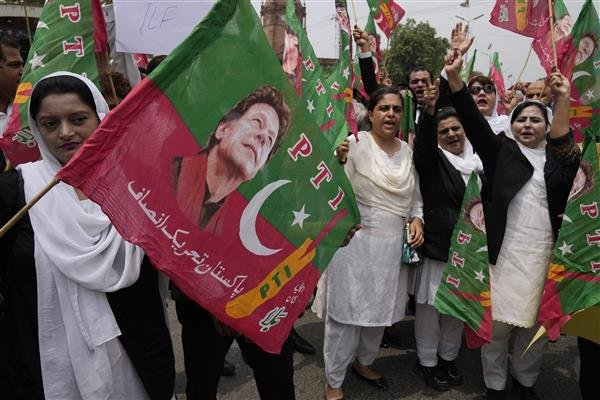Former Pakistan Prime Minister Imran Khan, who was recently apprehended in the Toshakhana corruption case, has voiced his discontent about his current detention in Attock prison. In a conversation with his legal representatives within the jail, Khan expressed his wish to be relocated to a different facility, citing his dissatisfaction with the conditions in Attock jail. He particularly highlighted the presence of flies during the day and insects at night in his cell.
The Pakistan Tehreek-e-Insaf (PTI) party, which Khan leads, has taken action by filing a petition with the Islamabad High Court, urging for his transfer from Attock jail in Punjab to the high-security Adiala prison in Rawalpindi. The party has also requested that Khan be moved to a detention center with improved facilities and has urged for his physician, Dr. Faisal Sultan, to be granted permission to meet him.
Naeem Haider Panjotha, Khan’s lawyer who was granted access to meet him in the jail, described the conditions as “distressing.” He highlighted that Khan was being provided with “C-Class jail facilities,” a categorization that refers to relatively basic conditions. Despite the challenging circumstances, Panjotha noted that Khan’s spirits remain high, and he is resolute in not succumbing to any form of pressure.
Imran Khan’s arrest followed a guilty verdict by an Islamabad trial court in the Toshakhana case, where he was charged with engaging in “corrupt practices” involving the unlawful sale of state gifts. This resulted in a three-year prison sentence and a five-year ban from participating in politics. Subsequently, Khan contested his conviction, asserting that the verdict was biased and violated due process.
Khan’s discontent regarding the conditions in Attock prison echoes broader conversations concerning the treatment of high-profile individuals during legal proceedings and the overall standards of their detention facilities. As the legal battle continues, the discussion raises important questions about the rights and treatment of individuals in custody, particularly those with significant public profiles.
